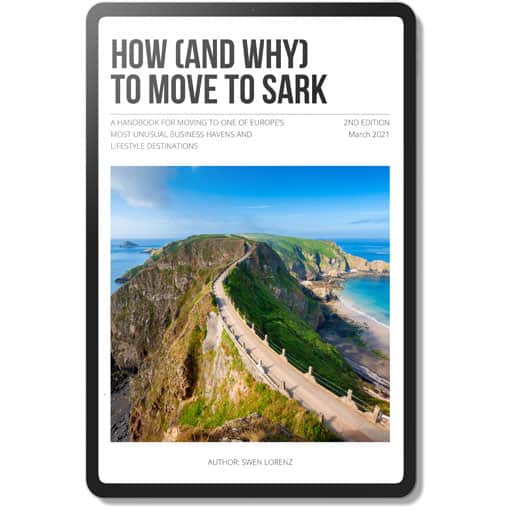So said Bill Earner, Managing Partner at Connect Ventures, a London-based venture capital firm that specialises in investments in seed, series A, and early-stage companies.
“If you don’t need to raise any money then that would be fabulous.”
Surprising words from someone whose business is to deploy funds by investing into start-ups, and whose own operation depends on companies seeking venture capital.
Bill’s tongue in cheek comments did aim at a point that I had long wanted to write about, so I’m glad meeting him at a TableCrowd dinner served as a worthy reminder.
Insights borne out of two decades’ worth of experience
Bill has had a lot of exposure to venture capital and early-stage companies.
E.g., he met Evernote when it was still a Russian company, and he met Spotify when it was still illegal (today it’s a $40bn company).
The company he now manages, Connect Ventures, has had investments in success stories such as Citymapper, Typeform, and Settled. Bill and his colleagues were raising their third fund at the time of the dinner.
“If you don’t need to raise any money then that would be fabulous.”
However, his two decades’ worth of experience in the sector have also given him insights into the reasons why venture capital will not work for everyone and, for many, could even be outright the wrong way of getting funded.
Venture capital is an extreme – and expensive – way of getting funded
“It is hard to imagine something as risky as early-stage venture capital.”
In Bill’s view, one cannot over-emphasize just how small a number of winners earn all the returns generated by the venture capital industry.
E.g., one could probably look back at the 1998 vintage and find out that Google would have delivered something like 90% of the returns of that particular year and every other company that succeeded was a rounding error.
“VCs are not worried about downside protection. Instead, they are looking for companies where the upside is uncapped.”
“It’s an almost unnatural way of trying to achieve an outcome, and only very few things will get big enough to be successful.”
And here is the crux of the matter:
“Your typical VC might make you do things that are upside driven.”
Put another way, some VCs will push you to make changes to your planning, and these changes could be in contrast to how you would manage your company (and its risk profile!) if you didn’t have outside investors.
Also, because of the extreme return requirement of venture capital funds, their funding will inevitably always be expensive. To take the extreme risk that is associated with putting money into early-stage ventures, they will want a very significant part of the pie.
Which is why Bill advised: “My approach would be to figure out how to run your business without external funding.”
He also advises to “ask yourself – really honestly – if your business will ever be pitchable? If your business gets as big as it can be, will that work for a venture capitalist?”
Because, to repeat it once more, venture capital is a costly way of getting funding. VCs will require you to generate at least a 10x return, if not more.
“Your typical VC might make you do things that are upside driven.”
What’s a cheaper way to get funded? Generate revenue and grow organically! Which will be slower, but which could still be less expensive in terms of generating more wealth for yourself, and leaving you in full control of your company.
What to do when venture capital IS the right way forward for you?
Obviously, there are other situations where venture capital is just what the doctor ordered.
E.g., when a company needs to conquer a space as the first mover, it will require heaps of capital and this kind of money is only provided by venture capital firms. In some situations, venture capital is simply the only way forward and it then also represents the cheapest, best and only viable source of funding.
Bill recommended how to approach a firm like his, emphasizing many points that readers of this blog will be familiar with from my previous articles, e.g.:
- Try, at all costs, to get a personal introduction to a venture capitalist. If you absolutely have to make a cold email approach, then tailor the email to that specific person and firm. Keep in mind that venture capitalists are human beings and that selling is a very personal thing.
- Expect venture capitalists to be very good at asking provocative questions. Don’t be offended by them but use them to help you.
- “For the pitch deck, channel your inner storyteller.”
What’s a cheaper way to get funded? Generate revenue and grow organically!
Bill also had some advice about not being afraid to go back to the drawing board and starting from scratch, if that is required:
“As a founder, you have to understand the opportunity costs. Maybe you should stop pulling on your idea and move on to the next one.”
“If you have the guts to start a company, over and over, eventually you’ll be successful!”
Which, as he said, may happen with venture capital – or without!
A quick note about the source material for this particular article: If you live in London or visit frequently, you might want to check out the service provided by TableCrowd. TableCrowd hosts dinners where a speaker is invited to elaborate about their experiences relating to fundraising, building a company, selling a company, etc. I am not affiliated with them, pay for my own dinner participation, and don’t get any commission for recommending them. But they do get my deep-from-the-heart recommendation for providing an insightful and quite affordable service to the London start-up scene. I get to meet people that otherwise, I would not have come across (including fellow diners), without having to pay a ridiculous joining fee or the kind of outrageous prices that some conferences attempt to charge. There are a whole number of articles on my website that trace back to attending one of their events.
If you enjoyed this, you might also find the following articles useful:
Want to print this article? Open a printer friendly version.
Did you find this article useful and enjoyable? If you want to read my next articles right when they come out, please sign up to my email list.
Share this post:


